
COVID-19 has presented new challenges to all of us. In the recent past we have had to quickly adapt to new ways of doing our work. Despite the challenges we are so excited to share with you our latest newsletter.
Sonke news & views
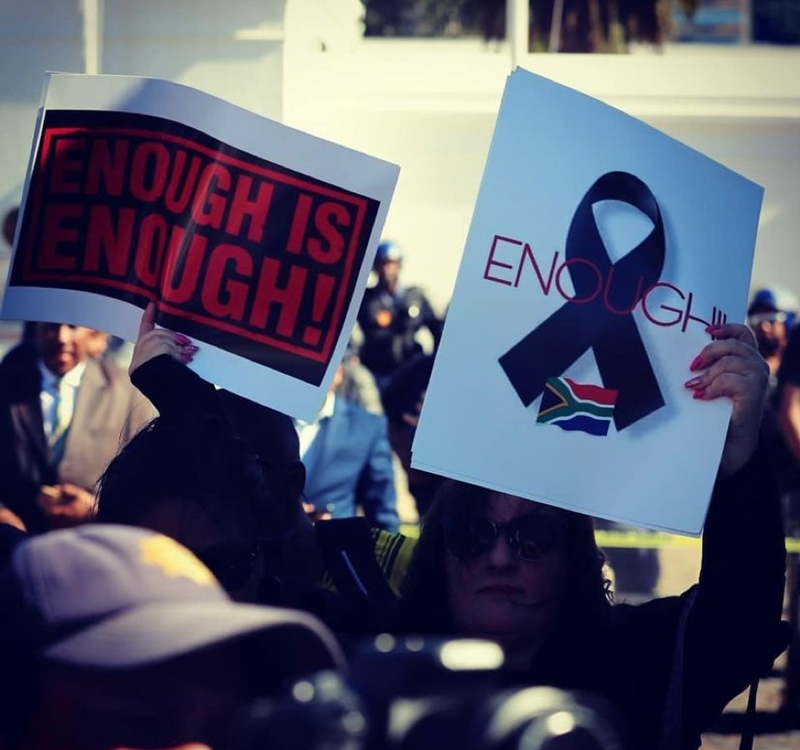
GENDER-BASED VIOLENCE
Bafana Khumalo & Rumbie Elizabeth Chidoori: Lack of GBV interventions are costing women’s lives
It has been two years since 19-year-old Uyinene Mrwetyana was brutally murdered and raped as she visited the Clareinch post office in Cape Town to collect a parcel. This year, in the same week as we remember Uyinene, another bright young life was taken. Nosicelo Mtebeni, a law student at the University of Fort Hare, was brutally murdered reportedly by her boyfriend Alutha Pasile in a house in Quigney, East London. Her body parts were subsequently dismembered, and some discarded in a suitcase on a street corner, whilst her hands and head were found in the residence, she shared with Pasile.
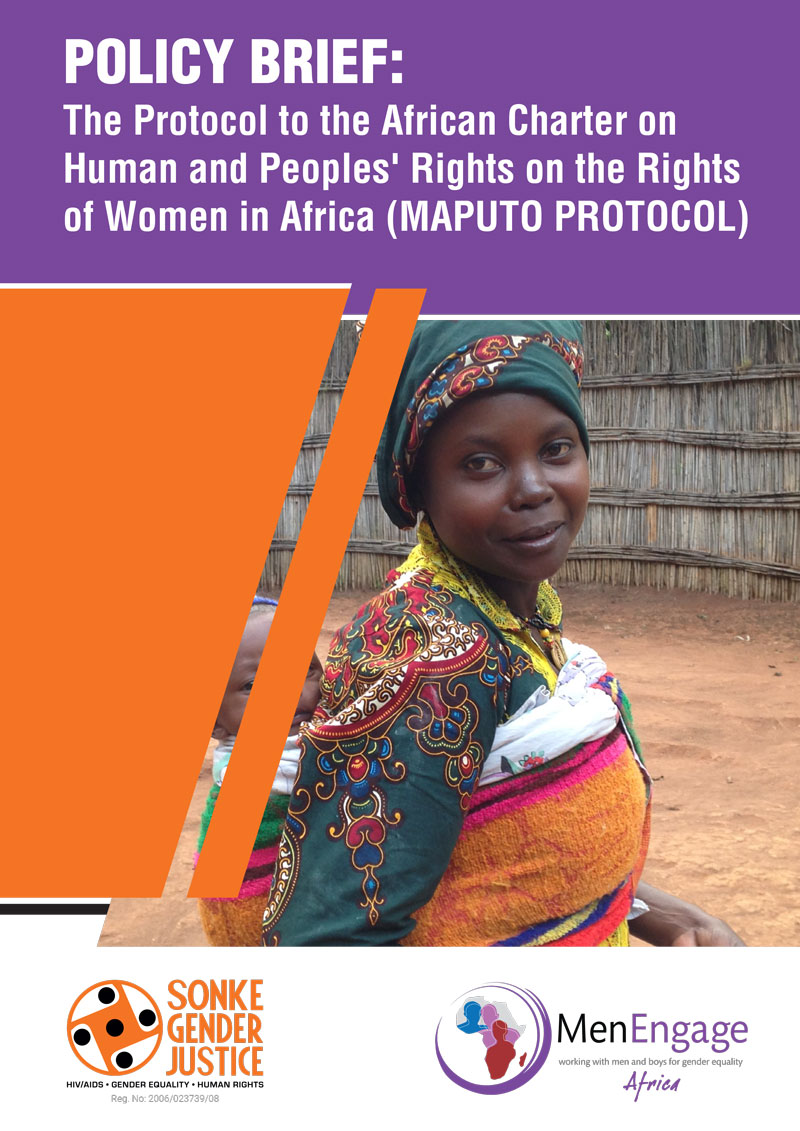
WOMEN’S RIGHTS
The Protocol to the African Charter on Human and Peoples’ Rights on the Rights of Women in Africa (MAPUTO PROTOCOL)
This policy brief provides a synopsis of the Maputo Protocol over the past one year as it turns 18 years. It also highlights the impact COVID 19 is having on achieving: SRHR/HIV and STI, Food security, Economic and Social Welfare, Harmful Cultural Practices and Gender Based Violence. It zeroes in on some of Kenya and Nigeria responses towards ending FGM in midst of the COVID 19 times. It then gives some policy recommendations for consideration by Civil Society, Policy Makers and Communities.

WOMEN’S RIGHTS
High-Level Panel: Maputo Protocol - From Ratification to Domestication and Implementation
On August 19, 2021 Sonke Gender Justice, MenEngage Africa, UHAI-EASHRI, the Initiative for Strategic Litigation in Africa (ISLA) and the African Women’s Development and Communications Network (FEMNET) hosted a high-level panel webinar to reflect on the opportunities and challenges considering the Maputo Protocol’s 18th Anniversary.
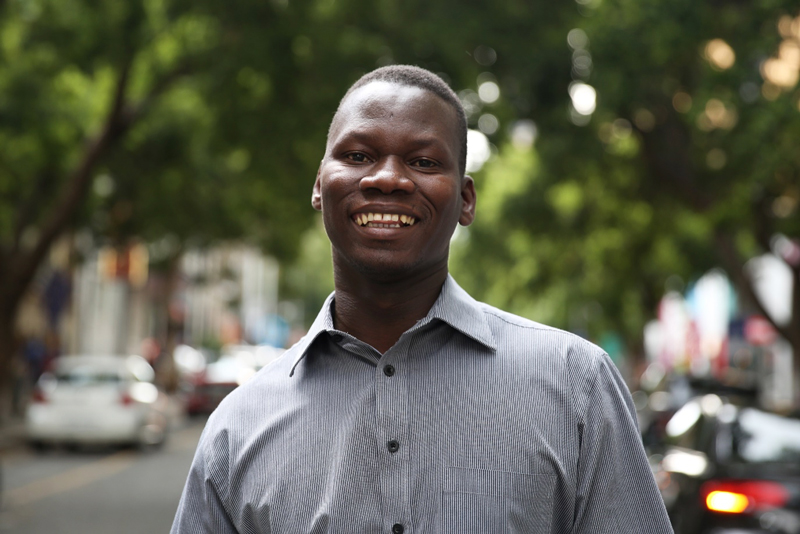
IN MEMORY
Khopotso Bodibe: Covid robs us of another wonderful human, journalist, and activist
Khopotso Mangoenyane Bodibe, or Khops, as he was known, was one-in-a-million. The tributes posted below recall his humanity, his love, his compassion, his big booming laugh and the incredibly important work he not only did as a journalist, but as a social justice journalist at the height of South Africa’s heart-breaking and deadly HIV denialism years.
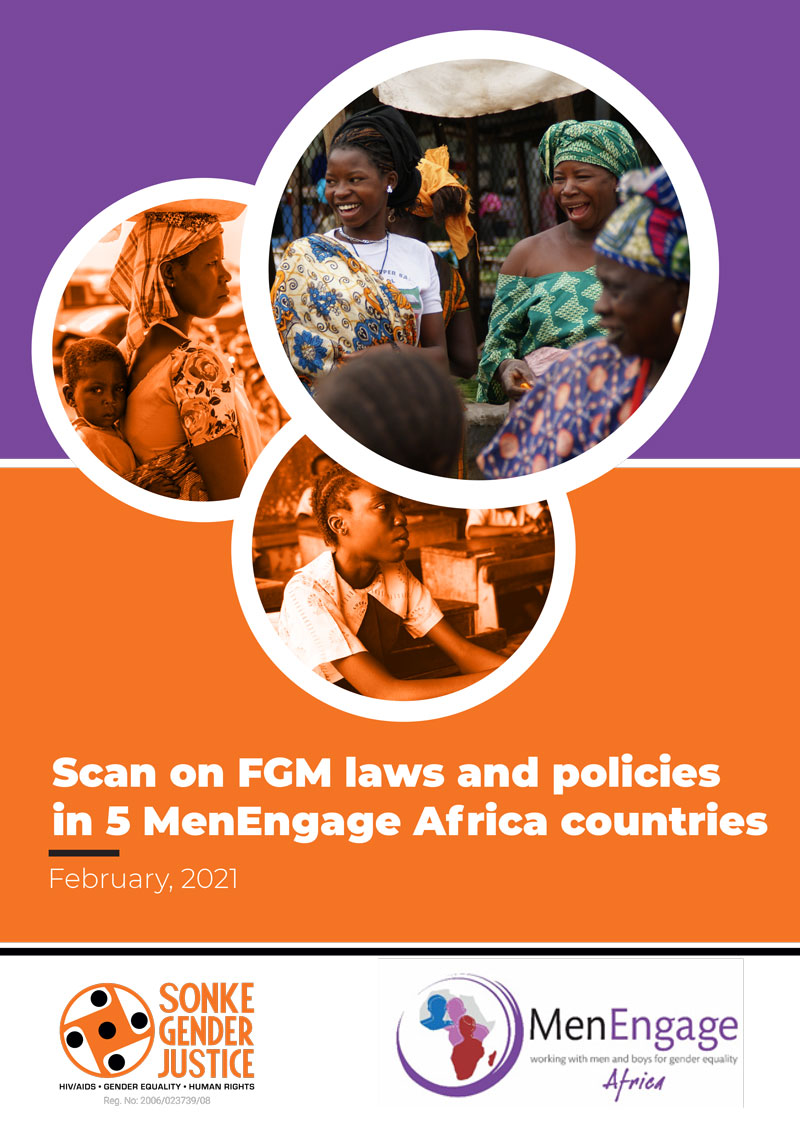
WOMEN’S RIGHTS
Scan on FGM laws and policies in 5 MenEngage Africa countries
Female Genital Mutilation (FGM) is the practice of partially or totally removing the external female genitalia or otherwise injuring the female genital organs for non-medical reasons. According to the World Health Organization (WHO) FGM comprises ‘all procedures involving partial or total removal of the external female genitalia or other injury to the female genital organs for non-medical reasons. FGM has been recognised as a harmful practice and a violation of the human rights of girls and women. The procedure is risky and life-threatening for girls both during the procedure and throughout the course of their lives. It is also a form of violence against women with devastating short-term and long-term impacts on the lives of women and girls, limiting their potential for full development, and a major obstacle to the achievement of gender equality.

COVID-19
Gendered Impact of Covid 19 in South Africa (A webinar by the Rosa Luxemburg Stiftung and the Alternative Information and Development Centre)
Our Programme Director, Masana Ndinga-Kanga participated in the ‘Gendered Impact of Covid in South Africa’ webinar. The intended outcome of this webinar is to firstly illustrate that equity is a central issue in public health and that there is an inescapable link between poverty, the feminization of poverty and access to health care, particularly in the South African context. This webinar, furthermore, seeks to build systems of solidarity among affected marginalised groups because of the pandemic.
AWARD
USAID awards Pact, IREX and partners two major awards to strengthen civil society and media for inclusive, representative democratic societie
USAID has chosen Pact, along with IREX and other consortium partners including Sonke Gender Justice, to lead two new regional programs, each titled Civil Society and Media – Strengthened Together and Advancing in New Directions (CSM-STAND). With one award focused on Africa and the Middle East and North Africa (MENA) and the other covering Asia, Europe and Eurasia, and Latin America and the Caribbean (LAC), these twin programs will achieve a global reach and partner with civic and media actors around the world.

GENDER-BASED VIOLENCE
GBV Focus Discussion | Tackling the scourge of GBV in SA
Our Programme Director, Masana Ndinga-Kanga participated in the ‘Gendered Impact of Covid in South Africa’ webinar. The intended outcome of this webinar is to firstly illustrate that equity is a central issue in public health and that there is an inescapable link between poverty, the feminization of poverty and access to health care, particularly in the South African context. This webinar, furthermore, seeks to build systems of solidarity among affected marginalised groups because of the pandemic.
PRIVACY POLICY
Sonke Gender Justice is POPIA compliant
Sonke Gender Justice is POPIA compliant (Privacy Policy) Sonke Gender Justice values and respects your privacy and would like to assure you that we are committed to keeping your personal information secure and confidential. With the Protection of Personal Information Act (POPIA) coming into effect from July 1, 2021, we want to ensure that we have your consent to keep sending through communication to you. The POPI Act gives effect to the constitutional right to privacy, regulates the way personal information may be processed and provides rights and remedies to protect personal information
Sonke on Youtube

A road to realising human rights
Gender-based violence (GBV) is an injustice that affects women and girls worldwide, with South Africa recording some of the highest rates of sexual violence, globally. Violence against sex workers – female, transgender and male – is particularly pronounced, and research shows that a third to half of all sex workers experienced violence in their workplaces in the last year. A legal framework that criminalises sex work has been shown to greatly increase sex workers’ vulnerability to violence and illness, particularly HIV, while reducing the likelihood that abuse will be reported.

Engaging Traditional & Religious Leaders as Gender Equality Champions: A Steppingstone to SRHR
RECOMMENDED RESOURCES
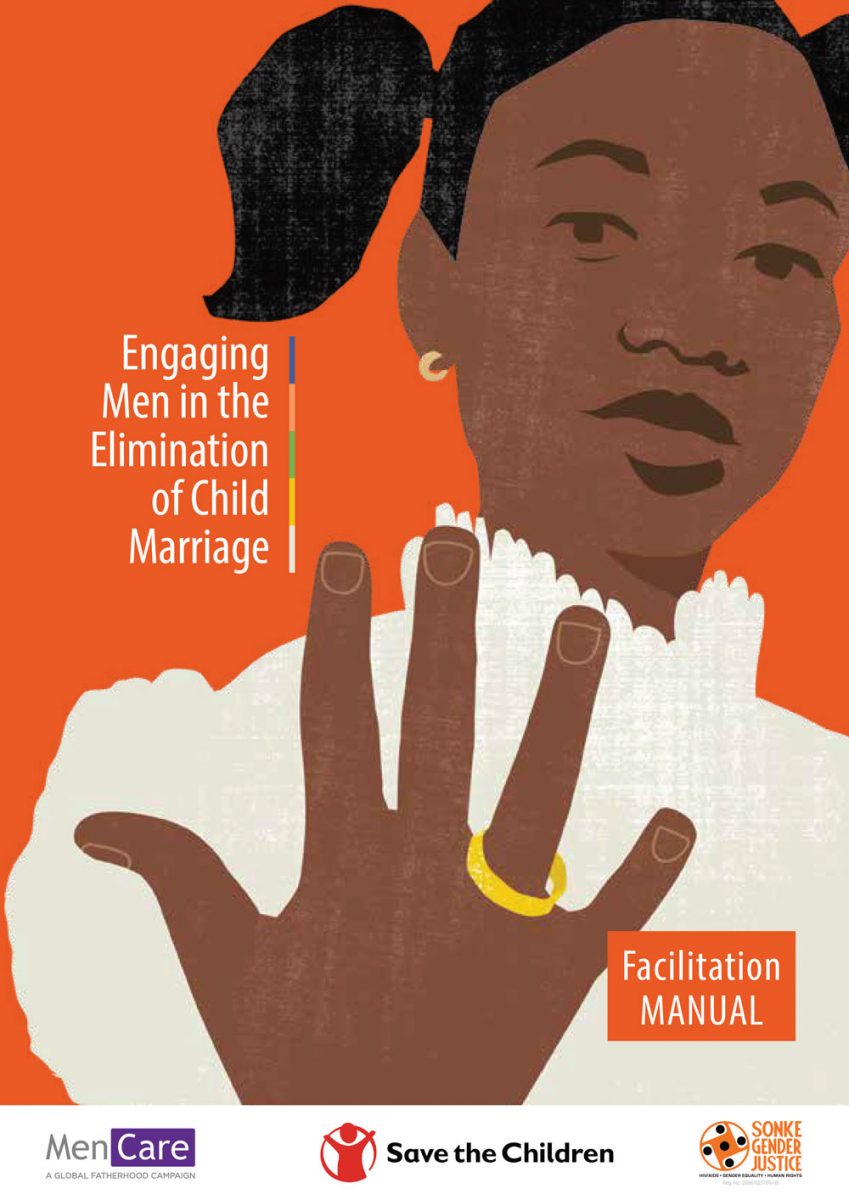
Engaging Men in the Elimination of Child Marriage
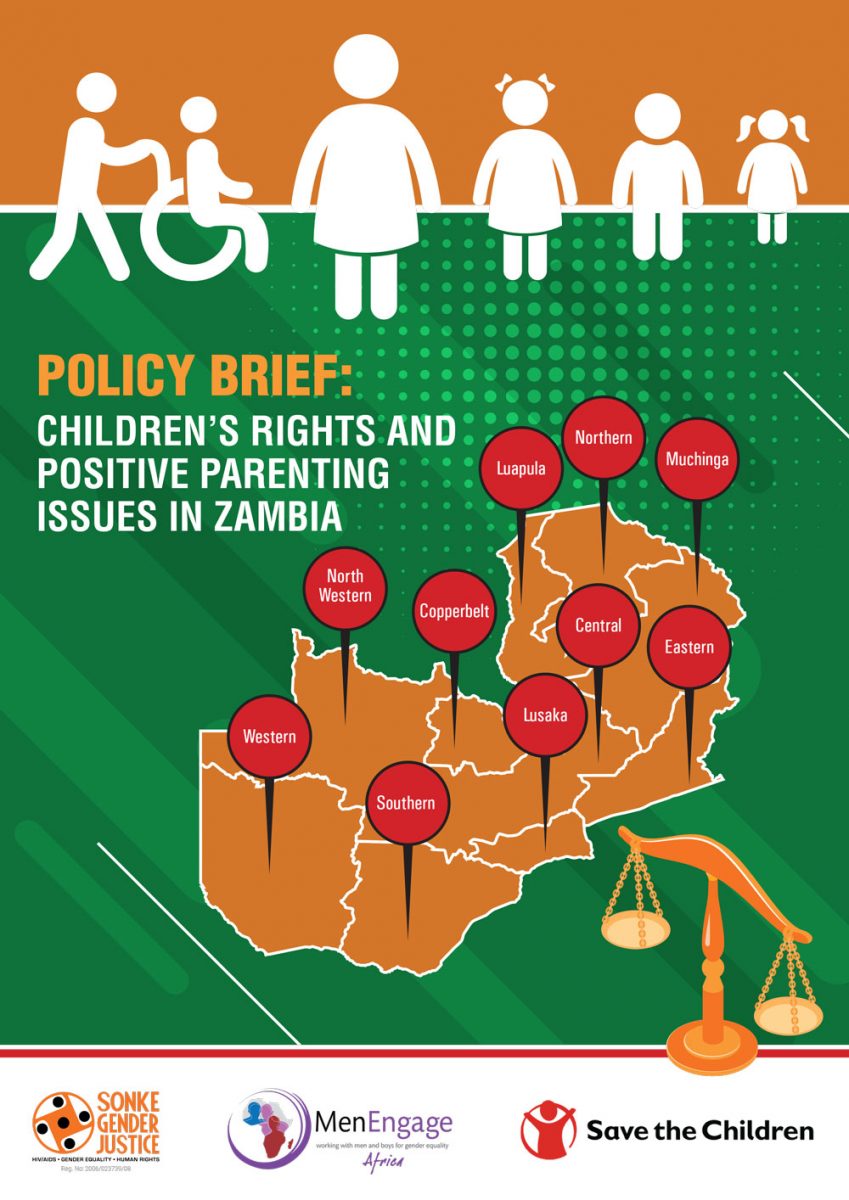
Children’s Rights and Positive Parenting in Zambia
Sonke has been following guidance from our government and the WHO by adhering to the COVID-19 precautionary measures, including mandatory working from home across the organization. We apologise upfront for any delays in responding to your emails as we at Sonke are committed to the wellbeing of our staff and fully understand their responsibilities in terms of child care and caring for vulnerable family members and family members affected by Covid-19.
To report an incident of sexual harassment, bullying, abuse or any other form of harassment experienced, seen or heard about, or an incident of fraud, corruption or bribery: CALL the toll-free whistle-blower hotline: 0800 333 059, or SMS: 33490, or email: sonke@whistleblowing.co.za
Sonke does not tolerate sexual harassment, bullying, abuse or any other forms of harassment.

